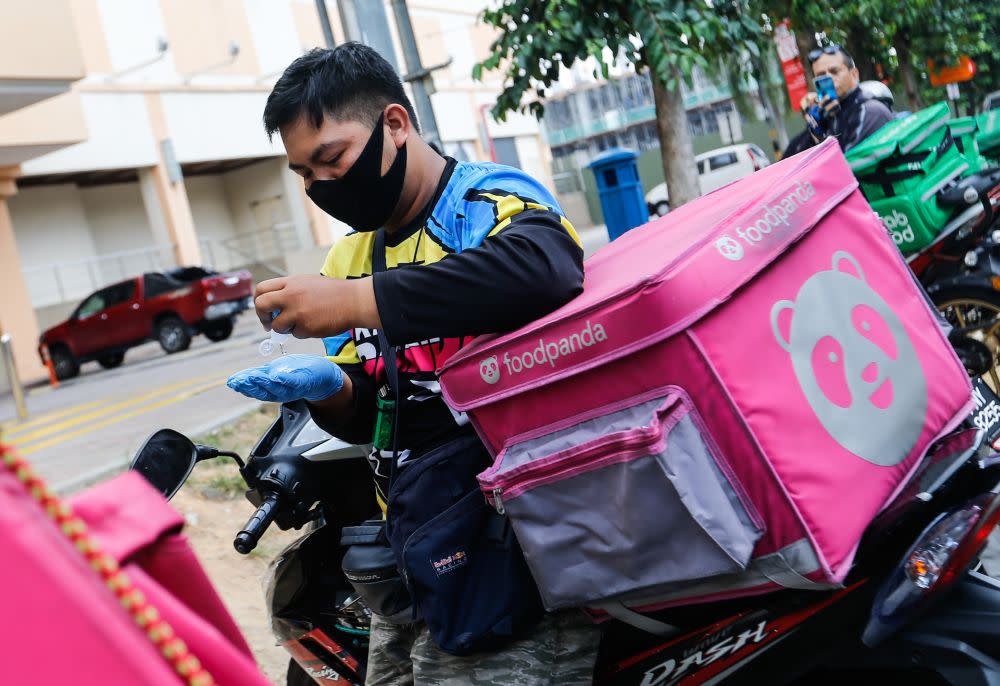Retail association leaders plead with food delivery platforms to reduce commission rates

KUALA LUMPUR, July 28 — Many food and beverage businesses find it difficult to sustain themselves by using the services of food delivery apps including Grab and Foodpanda, as the existing commission rates are too high, said the Malaysia Retail Chain Association (MRCA).
Its president Shirley Tay said that as a result, there is an increasing number of food and beverage outlets which are becoming less keen on utilising the services of food delivery apps.
“Food and beverage has traditionally generated a majority of its revenue from dine-ins, but since that is not possible now due to the pandemic and lockdown, takeaways and deliveries are the only sources of income.
“But how can you sustain yourself just by relying on delivery alone? There is probably almost no profit in it,” she said during the virtual launch of MRCA's Food and Beverage Division earlier today.
Tay said the dependence of food and beverage outlets on dine-ins cannot be overstated, adding that the pandemic and lockdown has nearly destroyed the industry, with many forced to shut down operations for good.
“We are hoping that more food delivery players will emerge on the market, and equalise the playing field. For the time being, I do not think we have any choice but to work with existing platforms like Grab and Foodpanda.
“All the same, we ask for some degree of consideration and goodwill from the food delivery platforms, to consider reducing their commission prices. I think the existing 30 per cent is too high, perhaps halving it would be more reasonable,” she said.
Food and Beverage Division chief Datuk Seri Garry Chua said that with the lockdown in effect, most food and beverage businesses can only achieve, at most, 10 to 20 per cent in profit.
“There are so many places where outlets are simply unable to cover their retail rent in order to operate. Smaller places can still remain afloat, but bigger outlets are closed since it is simply unprofitable to stay open.
“Similarly the number of orders made online is also quite small. The one segment of the industry that seems to be doing well in places would be home-cooked food, which has become quite popular,” he said.
Chua added that as the majority of outlets are suffering tremendously and living on the compassion of their retail landlords during the Covid-19 period, and hoped the government would play an important role in subsidising the industry, to be fair to those landlords who showed understanding.
When asked about the commission rates by food delivery platforms, he said it is unsurprising that food delivery is less profitable than dining in, given the habits of patrons in both instances.
“Bear in mind that when dining in, customers tend to order multiple dishes including appetisers and desserts, but for takeaway they are usually limited to single orders.
“I think the maximum amount of commission that should be charged by platforms is between 15 to 20 per cent, which is a more viable rate. Having said that, if the lockdown continues until the end of 2021, I think 90 per cent of food and beverage outlets will go under,” Chua said.
Related Articles Capping food delivery commissions' unintended consequences ― Khairil Ahmad Chinese market regulator strengthens protection for food delivery workers Phase One delivery: You can now get Ipoh 'Dai Shu Geok' fried snacks delivered to your doorstep



